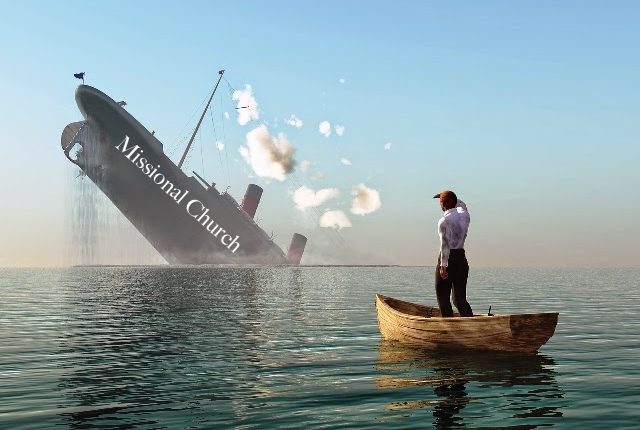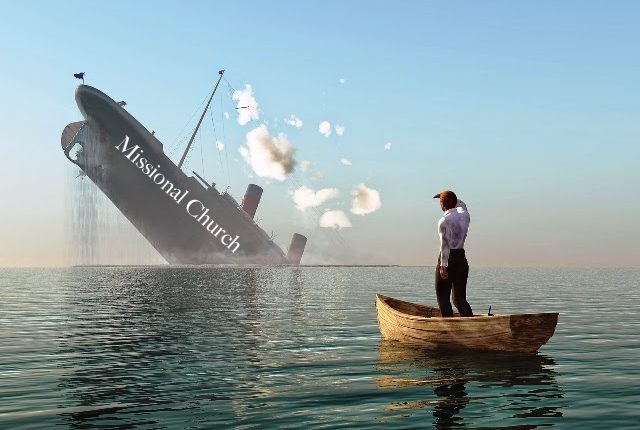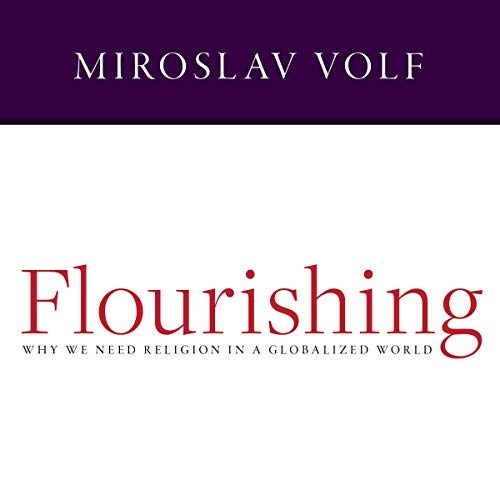
The pandemic destroyed the missional church movement.
The success of missional communities depends on close physical proximity with others. It’s fundamentally about sharing life together. Physical distancing protocols make this impossible.
Churches must proceed now as many have for centuries: As disseminators of religious information—fountainheads of knowledge for deeper truths beyond the material realm. With technology as it is, the time has never been better to spread the message. Good news is good news whether or not it comes with a neighbourly hug and a freshly baked pie. Right?
Years ago, I became sick of the Church as an “information station.” To me, there had to be more to being a Christian than listening to sermons and participating in theological discussions. I was convinced that relationships had to extend beyond the weekly glad-handing of near strangers and the perfunctory “Hi Brother” and “God bless you sister” that happened during the Shake Hands and Greet One Another portion of the Sunday service.
So I launched myself entirely in the other direction. Sunday gatherings I said are only a small part of what it meant to be the Church. Churches I intoned, should be collections of people on mission in actual neighbourhoods. The high calling of the Church was to be present, available, and helpful. We existed to welcome people into the good news through tangible acts of love. I was sure another sermon was not what Christian people needed. Like any good hockey coach, I realized that more motivational speeches and drawing up plays on the whiteboard weren’t going to help us win the game. It was time to get out on the ice and play!
But now, thanks to the pandemic, all play is stopped. Even the weekly handshake is not a possibility. We have been reduced to online Church, and that is precisely the opposite of missional Church. How does one share life with someone on the other end of a screen? Sharing is no longer allowed. These prohibitions have turned some Christians into conspiracy theorists. They have become convinced that COVID 19 is some sort of anti-Christ scheme designed to destroy the Church. So they will plug their ears to the warnings, trust in the blood of Jesus to keep them safe, and pat themselves on the back as good martyrs when they experience negative push back from the broader culture.
These thoughts turn my mind back to the ancient times when Christianity received such high praise for helping those who were sick and dying from the plague during the late Roman period. While everyone was fleeing the cities trying to avoid the plague, Christians fearlessly went in to help. Bravely many died alongside the ones they ministered to. But I wonder if such bravery inadvertently prolonged the epidemic? Courageous Christians unwittingly becoming carriers of the dreaded black death. Given what we know now about the transmission of such viruses, it’s hard not to think otherwise.
I have little interest in online Church. I’m not going to join the resistance movement either and covertly bring my bean salad to clandestine potlucks where we secretly lay hands on one another to pray in defiance of the Devils morose schemes to ruin the Church. Missional Church, as I’ve known it is finished and what seems right, may, in fact, not be right as my historical reflections have led me to conclude. So what is my Christian life in the community of faith supposed to look like moving forward? I don’t really know. Perhaps that’s a good thing. Maybe it is in the space of humble uncertainty that the voice of divine guidance is most clearly heard. I sure hope so.





6 Responses
Really? That’s all you got?
How does the “actually persecuted” church function? They have to fly under the radar, right? This doesn’t seem to be much different than that, sans the actual persecution.
It’s totally different. the persecuted church has a profound sense of community and belonging. Secretly they are together and nothing keeps them apart, except for maybe prison time. — it’s the solitary confinement that causes even the persecuted church problems. — The Pandemic is kind of like solitary confinement. At least that’s how I see it. It’s not good.
Thanks for sharing, I enjoy reading your posts.
Do you still believe that Mission – to love and serve those in your neighborhood – is the high calling of the church? If there ever was a time to take a stand, to show a small iota of courage, surely this is it, right? The entire mission of the church is at stake, and the consequences are… “negative push back from the broader culture”? If that’s all it took to destroy the church, it wouldn’t have made it out of the first century.
Following a higher purpose is not about conspiracies, resistances, or pats on the back. It’s about living out this strange idea that Jesus, a Jew crucified by the Romans for treason, is actually Lord. It’s always been a stumbling block to the Jews and folly to the greeks, push back isn’t a pandemic specific problem. If Jesus is our master, not Caesar, Trump, Fauci, or Bonnie Henry, then yeah it’s going to cause problems. It is through Jesus we find our identity, authority, purpose, and hope… right?
Obviously I don’t want to turn this into a COVID-data-type discussion, but there might be some ground to stand on even if your primary concern is the welling of others. It should be uncontroversial to say that western culture has become so dreadfully risk adverse that somehow the idea of putting a single person in harm’s way in exchange for the well being of the entire country is actually a controversial idea. The risk benefit analysis is not being done properly, and even if it was, there are just way too many variables and so much is at stake, from the economy, to our life goals and purposes, to our basic sanity. I read this back in May, and hardly heard anything since, apparently it’s not very important “UN projections released Tuesday, the UN’s World Food Programme (WFP) predicted that the number of people facing “acute food insecurity” stood to rise to 265 million by the end of this year, up from 135 million in 2019.” For people who depend on it, the economy isn’t just the “economy”. https://www.cnbc.com/2020/04/22/coronavirus-biblical-famines-could-double-global-hunger-un-warns.html
I couldn’t agree more with the idea that what seems right may in fact not be right, but that points in all kinds of directions, including back at you. It would be quite tragic, no doubt, if the actions of courageous Christians in antiquity to help those dying from plague served to prolong it, but we couldn’t blame them for it, and I’m sure it shouldn’t be the basis for inaction.
glad you enjoy the posts. Thanks for taking the time to really interact with what I’m trying to say. I don’t blame the Christians of antiquity for perhaps inadvertently spreading the virus they didn’t know any better. We do know better. Sharing life as I understand it can not be the same if the virus is as serious as the professionals say. That’s why the missional church is done like dinner, this is not an excuse for inaction, but it is a mandate for evolution. What that looks like I don’t know exactly
Changing how you execute the mission isn’t the same thing as cancelling it.
These are unusual and tough times. Not judging just praying now for you.